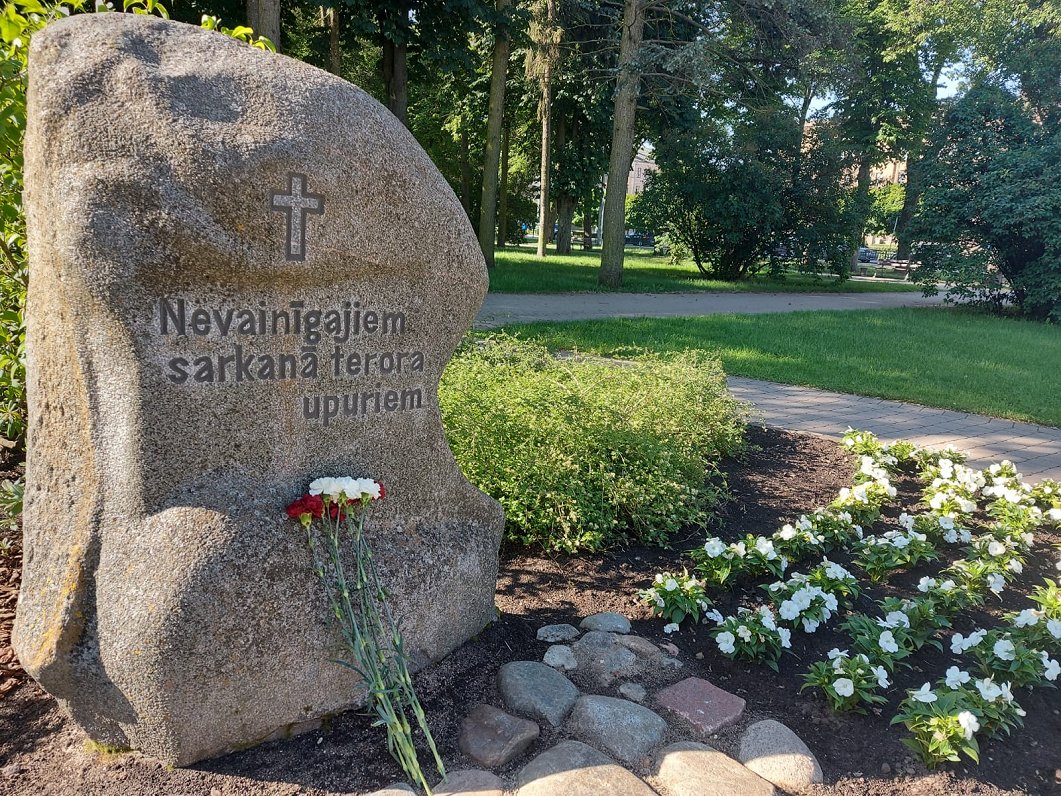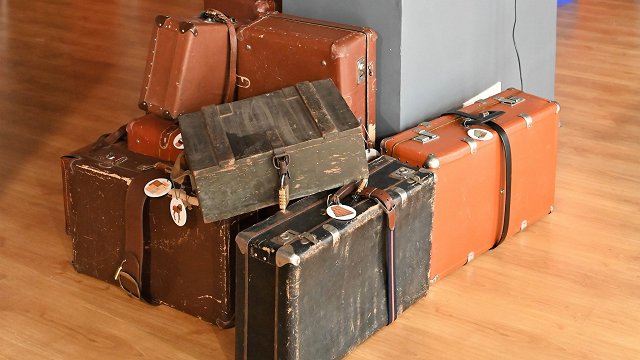There were two main waves of deportations, one in the wake of the Soviet Union's 1940 occupation of independent Latvia, which saw more than 15,000 people (including 2,400 children under the age of ten) loaded into trucks on June 14, 1941.
According to the Museum of the Occupation of Latvia: "Conditions in the hard labor camps were inhumane. The inmates lost their identities, and were terrorized by the guards and criminal prisoners. Food rations were meager, and did not replace the calories expended through work. People grew weak, and were crippled by diarrhoea, scurvy, and other illnesses.
Winters were marked by unbearable cold, and many did not survive the first one. Only a small part of those deported in 1941 later returned to Latvia. The families in forced settlement had to fend for themselves in harsh conditions; the death rate among the very young and the elderly was likewise high."
A second wave of deportations on an even larger scale, involving some 42,000 men, women and children took place on 25 March, 1949. Similar actions also took place in Estonia and Lithuania.
Foreign Minister Edgars Rinkēvičs was among officials noting the significance of the date.
Today the Baltic states mourn victims of June deportations, thousands of innocent men, women and children were deported and killed in 1941 by Stalin and his henchmen. We’ll never forget crimes of the Communist regime #Jūnijadeportācijas #Juuniküüditamine #Birželiotrėmimai
— Edgars Rinkēvičs (@edgarsrinkevics) June 14, 2022
Later, President Egils Levits was among those drawing a direct comparison between the events of 1941 and the atrocities currently being perpetrated by Russia in Ukraine.
14 June, 2022 | Remembrance Day for the Victims of Communist Genocide in #Latvia pic.twitter.com/mlr8gFATL6
— Egils Levits (@valstsgriba) June 14, 2022
In Moscow, the ambassadors of the Baltic states also showed that memories of Soviet atrocities would not be forgotten.
To honor the citizens of Estonia 🇪🇪,Latvia 🇱🇻 and Lithuania 🇱🇹 - victims of soviet mass deportations in 1941, flowers were laid by Amb. Margus Laidre, Amb. Māris Riekstiņš and Chargé d’affaires Virginia Umbrasiene at the Monument To Victims Of Political Repression in Moscow pic.twitter.com/9Ka5GVbH2a
— Māris Riekstiņš (@Riekstins__M) June 14, 2022
An excellent multilingual online virtual museum about the experiences of children deported to Siberia can be found here. Another good resource is this interactive map showing exactly who was deported and from where.



























